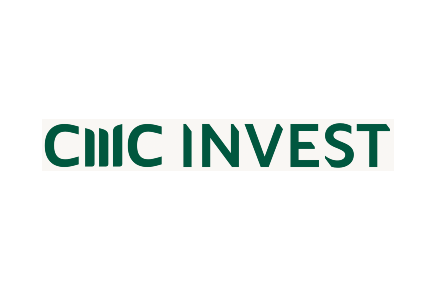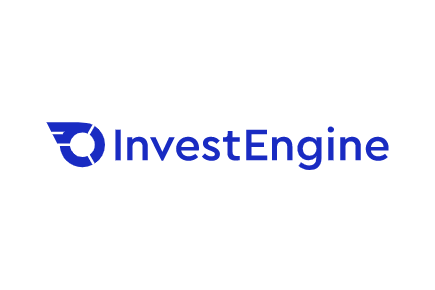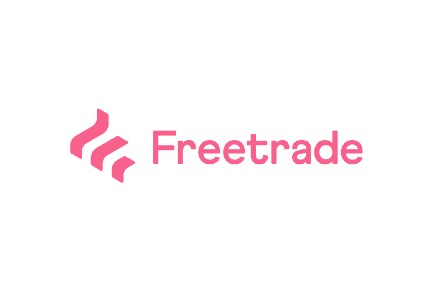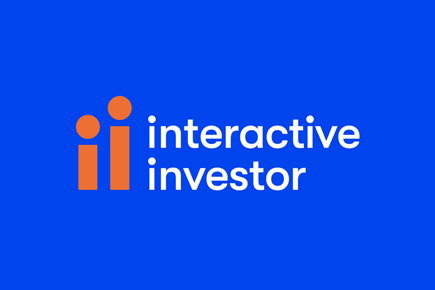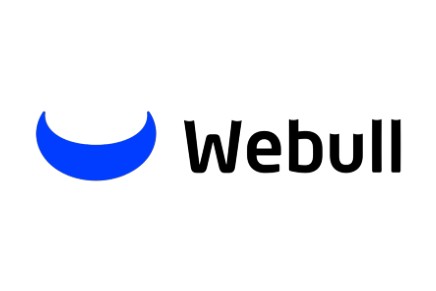Using day trading platforms is a popular investment and trading strategy for many individuals in the UK. While it may sound like a simple strategy, day trading can actually be highly complex.
That’s why most professional traders have often spent many years perfecting their day trading strategy so that they’re able to generate the kind of returns they want.
Regardless of whether you are a new or experienced trader, finding the best share dealing account for your personal requirements can be crucial to your trading success. I’ve compared fees, investment selection, platform use-ability, and additional features, to bring you my top picks of the best share dealing brokers for UK investors.
See my list of share dealing accounts reviewed below for more detailed information. I cover the pros and cons of each provider, their fees, accounts available and investment options.
Also consider: Discover the best online brokers for UK investors
Etoro have a substantial range of financial products to choose from and their commission-free trading make them a popular choice among frequent traders who enjoy the excellent range of financial instruments as well as a plethora of technical analysis tools. eToro also offers access to cryptocurrencies and CFDs from top exchanges from around the world.
However, there is also a lot to attract new traders to the platform, not least the extensive copy trading opportunities which allow you to mirror the trades of more experienced traders. Copy-trading doesn’t only benefit new traders as experienced traders can enjoy the benefit of their Investor Program which offers rewards when others copy their positions.
Another massive draw for eToro is the free Demo account which allows new traders to try the platform completely free of any risk with a starting balance of $10,000 virtual cash.
Pros
- Very low-cost
- Market-leading copy trading community
- Virtual account
Cons
- Withdrawal fees
- Limited education
- No ISA
- Withdrawal fee: $5
- Inactivity fee: $10 per month
- Currency conversion fee
- General Investment Account
- Demo Account
- CFDs*
- Forex
- Real Stocks
- EFTs
- Cryptocurrencies
{etoroCFDrisk}% of retail investor accounts lose money when trading CFDs with this provider. You should consider whether you can afford to take the high risk of losing your money.
CMC Invest are a fairly new proposition, brought to market by the well-established CMC Group. They appear to be expanding their features and investments at pace, and whilst they may not compete yet with some of the investment giants, they are certainly one to watch.
Here you can deal shares from the General Investment Account completely free of account fees or commissions which makes CMC Invest a really cost-effective investment platform.
There is an ISA which will cost you £10 a month on the Plus Plan and includes a multi-currency USD Wallet and mid-cap UK shares. New customers upgrading to this plan will get their first 3 months free (T&Cs apply).
They also have viable investment options for both complete beginners and mid-level investors with over 2,000 US and UK shares, live prices, and only 0.50% foreign exchange fees.
Pros
- Easy to use
- Very low-cost
Cons
- Limited range of products
- £10 per month for a Flexible Stocks and Shares ISA
- £0 for the General Investment Account
- £10 for the flexible Stocks and Shares ISA
- General Investment Account
- Flexible Stocks and Shares ISA
- UK Shares
- US Shares
- ETFS and Investment Trusts
Capital at risk.
Regardless of your investment style, InvestEngine is probably the lowest cost online share dealing platform available to UK investors. Their DIY portfolio attracts zero platform fees, set up fees, dealing fees, ISA fees or withdrawal fees.
InvestEngine have focused on providing a holistic platform that services the needs of every type of investor, regardless of their level of experience, offering both robo advisory services and DIY options.
Whilst there is a lot to like about InvestEngine, there is one major drawback, being their complete omission of any direct share dealing. DIY investors have the choice of an excellent range of exchange-traded funds.
£25 Welcome Bonus
£25 Welcome Bonus when you invest £100 or more. Terms apply
With investment, your capital is at risk. This could mean the value of your investments goes down as well as up.
Pros
- Lowest cost platform available
- Excellent customer service
- Suitable for all levels of experience
Cons
- No direct share dealing
- No SIPP product
- No ethical investment options
The only fees of note are the individual ETF charges and market spread costs.
- ISA
- Personal
- Business
- Exchange Traded Funds (ETFs)
Capital at risk.
Freetrade have one of the best sign up bonuses of all the brokerage platforms available with a free stock worth up to £200 for every new account that makes a deposit of as little as £1. This reward system is also bolstered by their refer a friend scheme that also awards free shares.
In addition to this Freetrade are also completely commission-free with access to thousands of UK and overseas stocks, EFTs and investment trusts as well as fractional shares. The platform is extremely user friendly and perfect for beginners who are just learning the ropes.
Pros
- Zero commission fee
- Free share for new accounts
- Very beginner-friendly interface
Cons
- $3 per month ISA fee
- Only provides access to US and UK shares
- Limited research available
| Cost per Trade: | £0 |
| Frequent Trader: | £0 |
| Annual Custody Fee: | £0 |
| Bonds Fee: | £0 |
| ETFs Fee: | £0 |
| Investment Trusts Fee: | £0 |
| Platform Fee: | £0 |
| ISA Fee: | £3 per month |
- General Investing Account
- Stocks and Shares ISA
- SIPP
- Freetrade Plus
- Stocks & shares
- ETFs
When you invest your capital is at risk, the value of your investments can go down as well as up and you may get back less than what you invest. *Other charges apply. Free share terms and conditions apply. The probability is weighted, so more expensive free shares will be rarer.
interactive investor is one of the most established platforms in the UK and enjoys an excellent reputation among traders. If you are looking for more than one account then this could end up being a cost-effective solution as the flat fee of £9.99 provides access to all the accounts on offer, and there are a few to choose from.
Frequent traders, in particular, will benefit from zero commission trading as well as one free trade per month.
In addition to this, the range of investment options is substantial with the option of trading funds as well as stocks and shares and interactive investor have excellent research and tools on offer.
Pros
- Wide range of financial instruments
- Excellent account options
- One free trade per month
- Free regular investing
Cons
- Expensive for small investment pots
| Cost per Trade: | £5.99 plus one free trade per month |
| Frequent Trader: | £0 |
| Annual Custody Fee: | £9.99 per month |
| Bonds Fee: | £40.00 |
| ETFs Fee: | £7.99 |
| Investment Trusts Fee: | £7.99 |
| Phone Dealing Fee: | £49.00 |
| Platform Fee: | £9.99 per month |
- Stocks and Shares ISA
- Junior Cash ISA
- Junior Stocks and Share ISA
- Self Invested Personal Pension (SIPP)
- Company account
- Cash savings
- Stocks and Shares
- ETFs (Share ETFs and Index ETFs)
- Investment Trusts
- Investment Funds
- Bonds and Gilts
- Venture Capital Trusts
Capital at risk.
Webull is a recent entrant to the UK market, popular for its low costs and commission-free trading of US stocks. However, it’s limited to US stocks, which may not suit those seeking global diversification.
UK investors also face FX fees when trading on this platform.
Final thoughts
Webull offers a cost-effective option for UK investors interested in trading US stocks, but its limited asset range and FX fees may deter those seeking diversified portfolios. It’s a suitable choice for traders focused exclusively on US markets, but other platforms provide broader investment opportunities.
Pros
- Low cost with no platform fees and low commissions.
- Access to fractional shares.
- Fully regulated by the Financial Conduct Authority (FCA).
- Protection under the Financial Services Compensation Scheme (FSCS).
Cons
- Limited to US stocks only.
- FX fees apply for currency conversion.
- No tax-efficient account options like ISAs.
Key Features
- Offers commission-free trading of US stocks.
- No minimum deposit requirement.
- Limited asset class, primarily focused on US stocks.
- Webull’s parent company is Chinese-owned but regulated in the UK.
Fees
- No platform fee.
- Low commission: 2.5 basis points per trade (0.025%).
- FX fees: Currency conversion at the time of execution plus a spread of 0.35%.
Products
- General Investment Account
Your capital is at risk. You may lose money on your investments.
How to choose the best online broker
There are several things to consider and the best stock broker for you will largely depend on your personal circumstances. However, these are the main points to bear in mind when you compare share dealing accounts.
Fees
Fees can start to erode any investment gains quickly and therefore it is important that you take this into consideration. The fee structure that suits you best will depend on how frequently you plan to trade and the size of your investment pot. Small pots can benefit from a percentage fee, whereby big pots are often best served by a flat fee. Some platforms will reward bigger pots with a reduced fee.
Ensure you fully understand the fee structure for the platform you are considering and take the time to work out what you are likely to be paying. I have gone into this in more detail below.
Accounts
What sort of trading account you use to conduct your trades will depend on your tax status. Any gains made on the trades you make, over and above the personal allowance, will be subject to Capital Gains Tax.
The personal allowance currently stands at £12,500 for basic rate taxpayers. Should you be exceeding this then you would be best served by trading from an ISA where your profits are protected from the taxman and you won’t have to pay Capital Gains Tax.
Investment Options
Most of these providers will provide access to UK shares listed on the London Stock Exchange however, should you wish to access stocks from abroad then you should ensure these are available and whether you can trade from a multicurrency account or whether you need to be concerned with exchange rates and conversion fees.
The number and quality of stocks can vary wildly from one broker to another so it is prudent to ensure your needs will be met in this regard.
Platform and user-ability
It is important that the platform and interface are suited to your style of stock trading. Beginners will be better served with a simple platform that is easy to navigate, whereas experienced traders will benefit from a more complex interface along with charts and tools to aid their decisions and research.
Understanding the broker’s fees
There are a number of fees to be aware of when share dealing and it’s important you understand all the charges your chosen broker is levying in order to avoid any nasty surprises.
Platform fees
These are the fees for the use of the platform from where you will be dealing your shares. They can be charged annually, monthly or quarterly and can either be a fixed sum (better for large investment pots) or charged as a percentage of your total investment amount (better for small investment pots).
Some brokers will have a sliding scale whereby the annual platform fee is reduced as the size of your pot grows.
Trading fees
Trading fees or share dealing fees are levied every time retail investor accounts buy or sell shares. Again, this can either be in the form of a percentage of the total value or as a flat fee. There are share dealing platforms (included in my recommendations) that waive this fee completely by offering commission-free trading. These are the ideal choice for very frequent traders. This fee can also be referred to as the dealing charge.
Fund charges
These need only be of concern if you intend to buy funds as well as shares. The fund charge covers the cost of managing the fund and can vary from fund to fund.
Overseas dealing charges
Overseas dealing charges are applicable when buying and selling shares that are from an exchange outside of the UK. They can include a currency conversion or FX fee which is usually calculated as a percentage of your trade value, or in some cases, this could be a flat fee.
A share represents an ownership stake, usually in publicly listed companies and share dealing can be a decent way to add value to your portfolio with the intention that you buy a share at one price and sell when the value of that share has gone up in price.
Of course, there is an element of risk when dealing shares and there are no guarantees that the value of your shares will go up in price. In fact, you could end up losing some or all of your money. The secret to mitigating this risk is to diversify your portfolio.
That being said, share dealing, or investing, can help to protect your money from the value shrinking effects of rising inflation. Historically, returns made from the stock market have outpaced the rate of inflation.
Whilst both of these entities have the same intention, to make your money grow, there are fundamental differences between the two styles. Typically investing refers to a long term approach, whereby you intend to buy, and hold your assets over a long period of time with the intention that the asset will slowly grow in value.
Conversely, dealing, or trading refers to the art of buying and selling assets at high volume over much shorter periods of time that could be daily, weekly, or monthly. This practice of taking advantage of fluctuations in the market is intended to reap smaller, more frequent profits.
A share dealing broker is a trading platform that facilitates the buying and selling of shares. There is no way to buy shares directly from the Stock Market which is why a broker is required.
These days, more and more brokers are becoming fully digital, offering an online trading platform from where you can access your trading account, buy and sell shares, and research the market all from a computer or mobile phone any time of the day or night.


